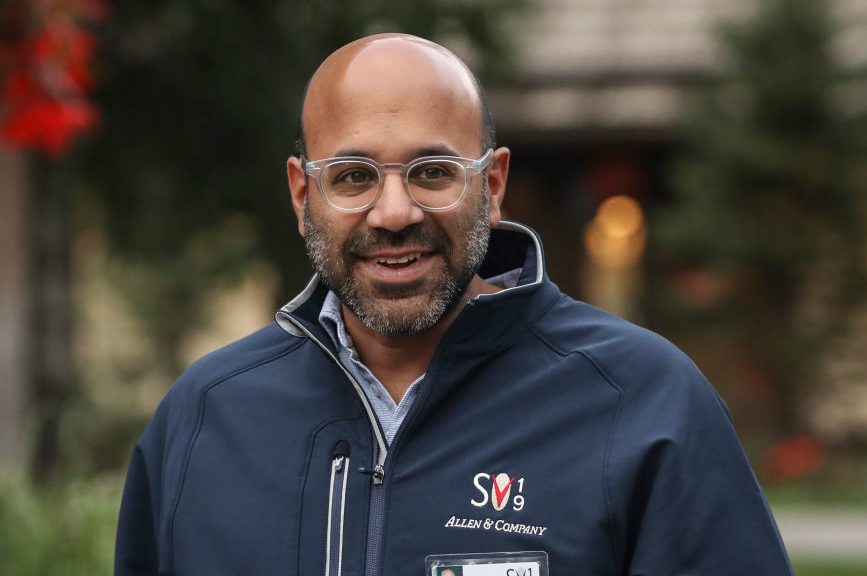It was a frustrating weekend for the workers at the National Human Trafficking Hotline. For days, they ‘received hundreds of reports’ referring to’ a series of viral posts’, though ‘none’ were made by someone who had ‘a specific connection to any alleged missing children’. This made it ‘more difficult’ for them to ‘provide support and attention to others who are in need of help’. The subject of those reports? Wayfair.According to the Wayfair child trafficking theory, which has stewed on Reddit, Instagram and elsewhere, children are being sold across the internet through the e-commerce website Wayfair. True believers have been exercised about the fact that furniture is being sold under names that appeared to match those of missing children. Why human traffickers, if they did sell children through a mainstream e-commerce website for some reason, would sell them under their real names is a valid question.Anyway, online eccentrics were scandalized, for example, to discover that a cupboard was being sold under the name Samiyah when a girl called Samiyah was missing. This would not have been a very big coincidence even if it had been true when hundreds of girls in the United States are called Samiyah, but it was exposed as an outright falsehood when Samiyah herself came forward to announce that she was not missing. Wait! Another young girl called Samiyah had gone missing! The theory swung back into action. Alas, for the true believers, that second Samiyah had been found the day after she had disappeared.Helping heat outlandish theories to their boiling point is a stream of false reports of child abductions. One Instagrammer with almost 200,000 followers backed up her suspicions regarding Wayfair by saying she had had a ‘close call’ with ‘what I believe were child traffickers’ at Ikea years before. This is a coincidence because a few years ago a post went viral on Facebook with tens of thousands of shares in which a woman claimed to have been followed in Ikea by people she was ‘almost sure’ were human traffickers. Needless to say, no human traffickers were ever found.Last month, in South Portland, a woman claimed on Facebook that a man had tried to abduct her child in a parking lot and had failed only because a store employee had intervened. Police hurried to investigate. They found no security camera footage of the incident and no witnesses. When confronted, the woman who had made the post admitted that she had made the whole thing up. One quote from the police is quite poignantly comic:‘We do not know why, and like with many incidents we investigate, we may never know why.’In Lancaster County, Pennsylvania, meanwhile, police were shooting downseveral false reports of child abductions. Weeks before, police in Missoula, Montana had had to quash similar rumors as well. It is tragic, really, that a principle as clear as ‘don’t take anecdotes on Facebook for granted’ is so difficult for people to internalize but such is life. At least the US has not reached the point of India, where false reports of child abductions that have been shared over WhatsApp have led to numerous extrajudicial killings.Part of me feels bad for poking fun at the ‘mom ’n’ pop store’ of moral panics. In our times, hysteria over child abduction and sex trafficking is essentially low status hysteria. High status hysteria is prompted by alleged hate crimes, such as in the case of Jussie Smollett, or gang rapes in elite institutions, such as in the cases of the Duke lacrosse team or the Phi Kappa Psi fraternity at the University of Virginia. As these cases illustrate, absurd and bogus fear-mongering can spread through the mainstream media as well as across Facebook.But child abduction hysteria is worth challenging, not only because it might endanger the men and women who are falsely accused of crimes, but because it does nothing to keep children safe. It inflates the worst nightmares of parents into grand dystopian fantasies without reflecting the worst dangers faced by kids. For example, men and women who want to keep children safe should bear in mind that most abductions are perpetrated by family members who are not the kids’ legal guardians. As Reutersreports, ‘fewer than 350 people under the age of 21 have been abducted by strangers in the United States per year since 2010’. That is by no means insignificant! We should be aware that child abduction and sex trafficking can and do happen. But it is not the ubiquitous phenomenon that some people believe.Child abuseis far broader and more pervasive than child abduction. Think about infamous criminals in influential positions, which the QAnon crowd are justifiably concerned about, and you will find that they rarely kidnapped children but groomed them. Jeffrey Epstein, Jimmy Savile, John Geoghan, Roman Polanski, Cyril Smith, Marc-Collins Rector, Dennis Hastert — none of these criminals in high places abductedchildren. They misled, intimidated and abused them.
[special_offer]
Even the most thuggish rape gangs, such as that which terrorized the English town of Rotherham, groomed their victims and bullied them into silence rather than outright abducting them, which would have forced the ineffectual, incompetent British police to investigate sooner than they did. These kids were trafficked, inasmuch as they were passed around between their degenerate rapists, but they never disappeared. That would have made it too obvious. When children do vanish into the arms of traffickers they tend to be runaways, or, sickeningly, children who have been sold by their parents — children, in other words, whose disappearance no one will do much to bring attention to. Taken was an entertaining film but human traffickers do not want to prey on middle-class children with devoted dads who will come looking for them.Exaggerations of ‘stranger danger’ also lead parents to keep their kids from playing outside and coop them up at home. This is harmful in itself — leading, some researchers say, to anxiety and a failure to self-regulate — but also means that kids spend less time with their friends and more time with their phones. A bleak irony is that it is through their phones that some of them encounter sexual harassment, blackmail and cyber-bullying, as well as the destructive influences of social media. Of course, parents should be watchful, without being hysterical, in any situation. But it remains true that their children could face more risks online than they face outside. The impulse towards protecting children who are being abused is a laudable one. At least some of the people who take an interest in ‘Q’ and other phenomena are well-intentioned, if misguided, and attempts to force them off the internet could have a radicalizing effect. In obscuring the actual nature of the risks faced by children, however, people harm rather than helping their cause. Building up dramatic Lynchianfantasies of evil and danger lurking in small towns and in suburbs can do more to reduce real suffering to a morbid game.


















